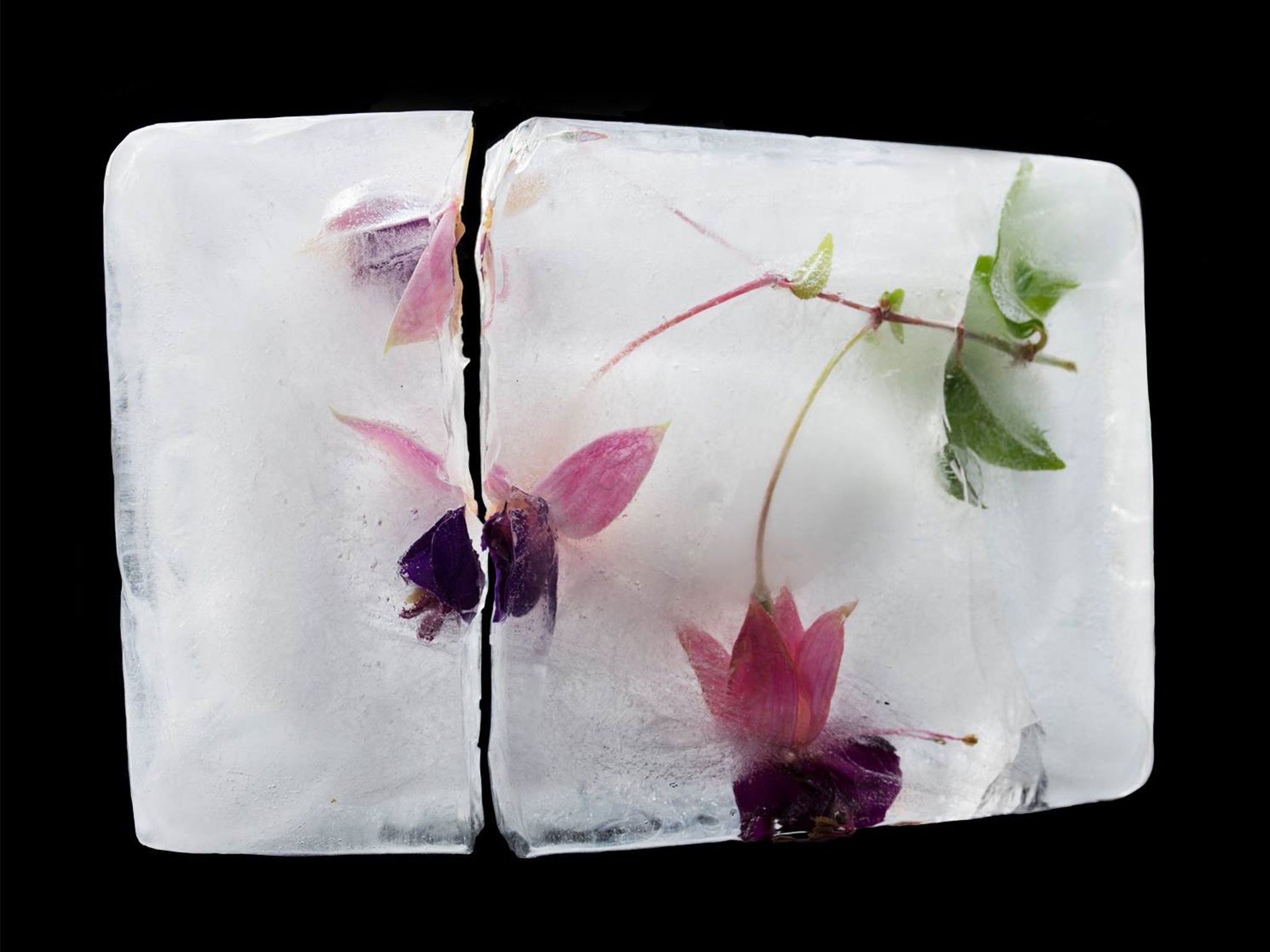Frozen in time: Photographs of flowers in ice represent lost memories of those suffering from Alzheimer's
In creating blocks of flowers frozen in ice, Nicola Onions explores the fragility of the human mind and our desperate attempts to try and preserve memories

Your support helps us to tell the story
From reproductive rights to climate change to Big Tech, The Independent is on the ground when the story is developing. Whether it's investigating the financials of Elon Musk's pro-Trump PAC or producing our latest documentary, 'The A Word', which shines a light on the American women fighting for reproductive rights, we know how important it is to parse out the facts from the messaging.
At such a critical moment in US history, we need reporters on the ground. Your donation allows us to keep sending journalists to speak to both sides of the story.
The Independent is trusted by Americans across the entire political spectrum. And unlike many other quality news outlets, we choose not to lock Americans out of our reporting and analysis with paywalls. We believe quality journalism should be available to everyone, paid for by those who can afford it.
Your support makes all the difference.Spending time with her elderly grandfather, Nicola Onions was struck by how much his memories seemed to change with each retelling of a story. She recorded some of their conversations in which he would tell the same tales over and over, but each time slightly differently, or with something missing. Inspired by the fragility of human memory, the 25-year-old art photographer began researching the names and meaning behind different kinds of plants and flowers, as part of a wider project to create a physical representation of memories lost.

“The first flower I froze was a ‘forget - me - not’,” she says. “As a symbol for the project, the outcome was a strong image in itself.'' She explains: “Even when we recount an event we remember quite clearly, we often leave out details or exaggerate the truth. We take photos, keep mementos, write things down to help us remember, but it’s never quite the same.''

Boiling water to keep the ice as clear as possible, Onions methodically froze half of each block before trapping the carefully selected flowers in another layer of water. The extra stages also allowed for more time shooting each block before it melted away, resulting in a series of images taken at different points in the preservation process to illustrate change. Each ice block would take a couple of days to complete.

“Flowers in ice show that we often try to preserve memory, time, beauty but it doesn’t always work. The flowers or memories are changed; the flowers are limp, discoloured, the ice cracking and melting away and not much is left,” she says.
“Taking something natural and living and seeing what the freezing and thawing does to the flowers has been really interesting too - we are quite used to seeing the natural decomposition of plants but this process is a little different, taking something normal out of context for me visualises the idea well.

“The process of life and being effected by time is something every living thing experiences, it’s a process that humans try to stop sometimes but we can’t.”
Ms Onions, who is based in Oxford and has explored the theme of human memory within her previous projects, believes it especially important to the creative process that each ice piece is created with care.

“Working with ice means there is a level of experimentation, however; sometimes the ice melts in way you didn’t think that it would, or it cracks and breaks.”
One of her favourite images, she says, is that of a broken fuschia – an example of a “happy accident” and a poignant reminder of the deterioration of the human mind over time.

“I have utilised this organic process and incorporated it into the project as I think accidents sometimes create something beautiful and are also a part of life,” she says.
Several of the flowers chosen have names and connotations assigned to them in the Victorian period, when the language of flowers was a serious consideration for many.

“Quite a lot of them are to do with love or loss, for example Lavender is ‘distrust’ and a yellow Tulip is ‘hopeless love’… some have completely different meanings for instance a Peony means ‘Bashfulness’.
“To me the memories they represent are about love, loss, life, death, heartbreak and strength through adversity."
Nicola Onions - cargocollective.com/nicolaonions
Join our commenting forum
Join thought-provoking conversations, follow other Independent readers and see their replies
Comments